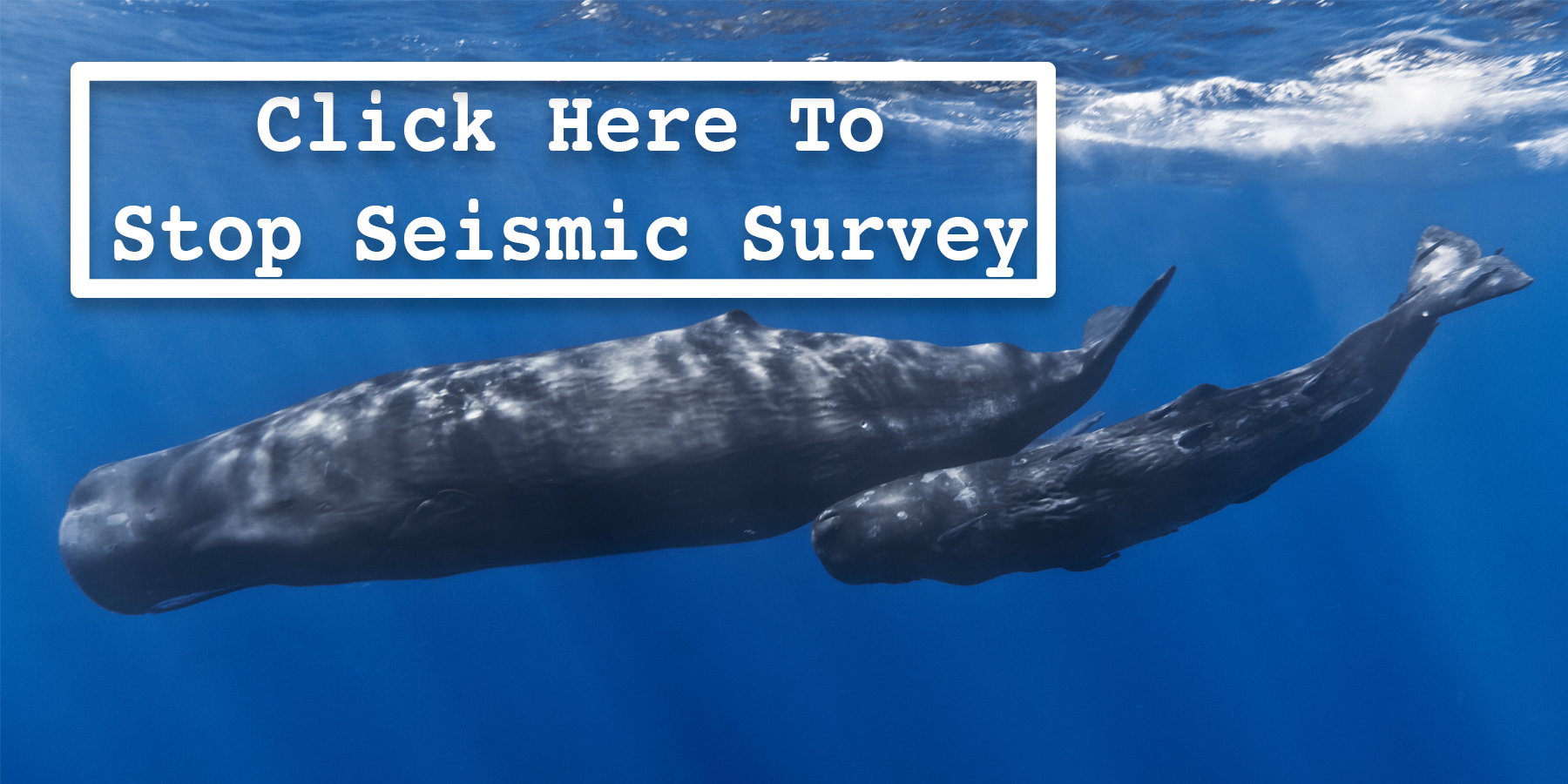|
Our oceans are being blasted every 10 seconds and it's killing marine life. Click here to tell Secretary of the Interior Sally Jewell to stop deafening the whales in search of oil.
Friend,
Marine mammals, especially whales, rely on sound to navigate, communicate, respond to predators and search for food. Which is why noise pollution caused by seismic testing is known to have harmful consequences to whales and other marine mammals,1 with hearing loss being the most extreme and immediate form of physiological harm.
These marine mammals are not the only ones opposed to seismic blasting. Eighty-nine East Coast municipalities, along with more than 600 federal, state and local elected officials up and down the Atlantic coast, all publicly oppose seismic testing for oil. These leaders and communities all know the potential harm to our economy, environment and way of life.2 Over 85 communities and local governments have passed anti-drilling resolutions, including major coastal cities like Charleston, Myrtle Beach, Savannah and Wilmington.3
But these local leaders can't do it alone! So we're calling on Interior Secretary Sally Jewell to protect our whales and reduce acoustic smog by banning seismic testing in and around known marine mammal habitats. Click here to protect marine life, stop new oil exploration, prevent another oil spill and tell Sec. Sally Jewell to stop off-shore seismic surveys -- and tell your friends too!

It’s not even clear how much oil and gas there is off the Eastern seaboard where seismic testing might be used. What is clear is that seismic cannons blast compressed air underwater, sending sound waves to the bottom of the ocean that produce echoes to be used by industry to map oil and gas deposits.3 The constant noise of seismic blasting, firing every 10 to 12 seconds, can lead to horrible impacts to marine life such as hearing loss, chronic stress, mother-calf separation, standings and all kinds of acute behavioral responses.1
One sad example is the narwhal: A unique characteristic of the narwhal is their tendency to ‘freeze and sink’ in response to a threat such as noise, rather than fleeing the area. This means narwhals are more susceptible to damage from airgun blasts as they are not inclined to avoid regions impacted by noise.4
Seismic testing could be coming soon to many more states -- including beaches all along the Atlantic coast, and previously un-drilled sections of California. Big Oil is pushing to open new sections of our coastline from the Atlantic to the Arctic.
We need to raise our voices and stop it! The expanded use of seismic airguns could devastate marine life, harming fisheries and coastal economies.5 Click here to press the mute button on seismic testing and share with your online network through social media or email.
Thank you for everything you do,
Sally and the Save the Whales Team at Environmental Action
1. National Marine Mammal Laboratory. National Oceanic and Atmospheric Administration. United States Department of Commerce.
2. Ouzts, Elizabeth. Atlantic Coast leaders urge Obama to drop offshore drilling plans. Environment America. November 19, 2015.
3. Weaver, Sierra. Risks of Offshore Drilling in the Atlantic. The New York Times. November 20, 2015.
4. Cucknell, A-C., Boisseau, O., Moscrop, A. A Review of the Impact of Seismic Survey Noise on Narwhal & other Arctic Cetaceans. Greenpeace Nordic / Marine Conservation Research Ltd. May 2015.
5. Calloway Whiting, Candace. Terrifying and Destructive to Whales and Dolphins: A Glimpse Into the Reality of Seismic Exploration. The Huffington Post. September 12, 2013.
|
